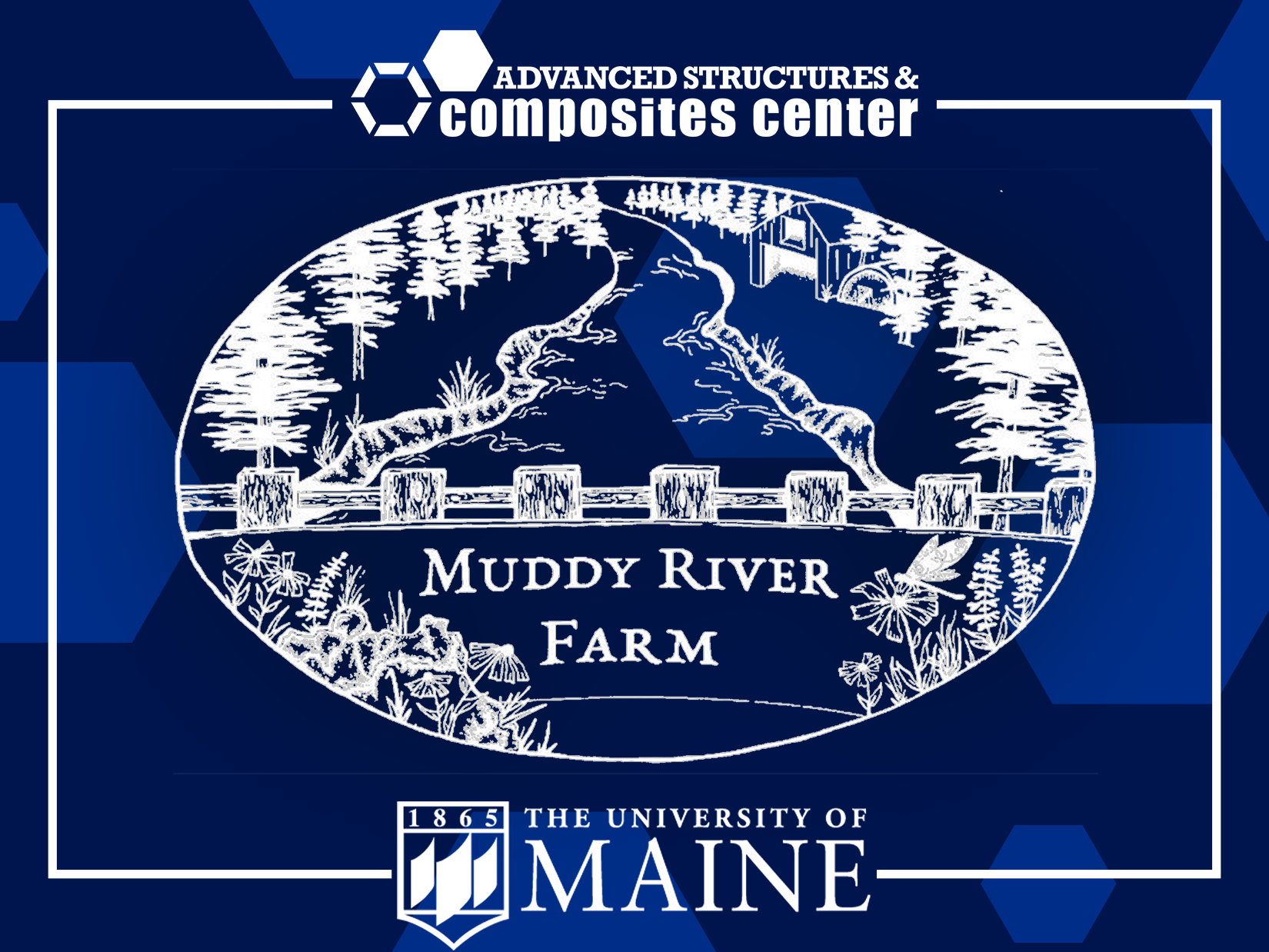
The UMaine SM²ART Program and Muddy River Farms innovates Maine’s marine resources industry
Last year was nearly the warmest year on record for the Gulf of Maine, second only to 2021. The rapid warming is impacting marine ecosystems and coastal areas and bringing changes to Maine’s fisheries. In addition to impacts associated with climatic change, the state’s fisheries are contending with food chain disruptions, fuel prices, overfishing of certain species, and regulatory cutbacks and closures.
Matt Nixon is hoping to address these issues at Muddy River Farm Aquaponics, LLC. Muddy River Farm is a freshwater and saltwater aquaponics production facility located in Topsham, Maine with a vision of providing low cost and healthy vegetables, freshwater fish, and seafood using sustainable, resilient, and innovative methods and grow techniques. Muddy River Farm is working to reduce the demand for energy and feed, which are the highest costs associated with land-based aquaculture facilities.
Nixon is currently a Ph.D. candidate in Marine Science/Aquaculture and Aquatic Resources at the University of Maine. He attended UMaine as an undergraduate and pursued a career with the Maine Coastal Zone Management Program until, inspired to try something different, he resigned to focus on the company. Nixon brainstormed with Advanced Structures and Composites Center (ASCC) researcher Dr. Doug Gardner on a way to grow oysters in the Topsham facility in cost-effective tanks. Nixon and Gardner brought the resulting idea–a 3D-printed oyster pod–to the UMaine I-Corps program, the UMaine MIRTA program, and to the SM²ART program.
The SM²ART between the University of Maine’s ASCC and Oak Ridge National Laboratory offers short-term technical collaboration partnerships. Technical collaborations enable industry partners in the early stages of commercialization to tap into UMaine and Oak Ridge National Lab capabilities with the goals of industrial decarbonization, implementable solutions, and economic development. There are two phases of the program; the first allocates $40,000 for collaborative work with a company match, and if successful, phase two allocates up to $200,000.
Muddy River Farm was the first technical collaboration taken on by the SM²ART program. The first phase focused on formulating a design for a printable oyster tank, testing different materials to find the best fit, and a cost analysis to determine the cost and energy savings of using additive manufacturing. Saltwater tanks are usually made using glass, concrete, and steel, which are cost-prohibitive and energy intensive; printing the walls with a bio-based material promises to be a cheaper and more sustainable alternative to these traditional materials. 3D printing the tanks allows for flexibility in the shape, such as the ability to adjust the thickness or curvature of the walls.
Nixon and ASCC researchers arrived at a design with an integrated water velocity control system based on a landscape waterfall model. The user only needs to attach PVC pipes. “It’s essentially a one-stop shop package for oyster growers,” says Nixon. The tanks were prototyped in phase I then delivered to Muddy River Farm for a five-month structural and materials test in real-world conditions. After testing, the design was improved upon and commercial-grade pods were 3D printed at the ASCC during the second phase of the collaboration. Testing included suspending a prototype in salt water for five months without any issues or algae growth. The oyster pods then moved to Muddy River Farm for a twelve-month trial period in the field.
Muddy River Farm is working with local growers to implement a new, year-round grow system for Eastern Oyster and Mahogany Quahog. The spat will grow at Midcoast farms like Mere Point Oyster Company until mid-fall, then the seeds will be moved to Muddy River Farm to overwinter in the oyster pods, and sold in early spring. The final design for the oyster pods will be made available to small aquaculture companies under a licensing agreement. Muddy River Farm’s website states: “Our business model relies on partnerships with small aquaculture farms–as opposed to being in competition with them.” Nixon explains that the goal is to enhance shellfish growth during storage and develop technology that can transfer into the commercial space and benefit the aquaculture industry.
An ongoing challenge is feedstock–food is free in the ocean, but not in a terrestrial facility. In the future, Muddy River Farm will grow phytoplankton in additional tanks for feedstock, resulting in a carbon-neutral, fully sustainable and self-contained food production facility.
SM²ART technical collaborations aim to support economic development while decarbonizing industry. The Muddy River Farm technical collaboration is introducing a sustainable, cost-effective technology to a rapidly growing industry. “This type of work is needed in Maine right now to help support our marine resources industry,” says Nixon.
To read more about SM²ART tech collaborations, click here.
Contact: Taylor Ward, Taylor.Ward@maine.edu
